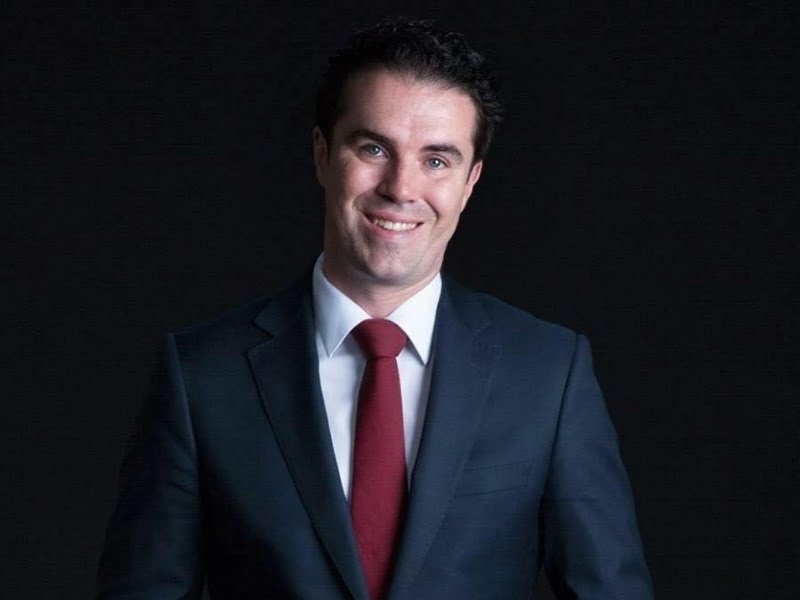The federal government must require greater transparency from the social media giants about COVID-19 misinformation following the large-scale anti-lockdown protests in Sydney and Melbourne at the weekend, shadow assistant minister for cybersecurity Tim Watts says.
Thousands of people marched through the streets of Sydney and Melbourne to protest against lockdown restrictions in both cities, with reports the protests were organised through social media and driven by content on the platforms.
A report from The Australian said that misinformation about the pandemic and the protests was spread on Facebook faster than the global tech giant was able to delete it.

Mr Watts said that tech firms like Facebook were spreading dangerous misinformation for years, and action needed to be taken to stop this.
“These are minority, marginal views. A very tiny proportion of the population share these views but unfortunately the views of these people are amplified by social media platforms, and they’re more easily able to find other people with their stupid and selfish views on social media platforms, and they’re able to organise to the detriment of the entire country,” Mr Watts told InnovationAus.
“The overwhelming majority of Australians understand that the way we need to beat this pandemic is through community action to stop the spread of this virus from one person to another.
“A big problem we’ve seen in recent years is the business model of these social media platforms is driven by the promotion of engagement through outrage, division and conspiracy. That’s their business model, and it’s hurting our democracy and hurting our community.”
There is a dearth of data from these companies on their actions to combat misinformation and the prevalence of it on their platforms, Mr Watts said, and addressing this is the first step to further regulations.
“Facebook makes a number of claims about the good quality of information about COVID-19 that users are able to access on its platform, but it doesn’t share data around the volume of conspiracy theories and misinformation on COVID-19,” he said.
“Independent researchers and academics aren’t able to access Facebook’s data to make assessments, and that leaves policymakers in a very difficult position, they’re only seeing a [small amount] of the evidence on the issue.”
It was reported recently that Facebook was splitting up the independent team within it working on CrowdTangle, an analytics tool for social media posts acquired by the tech giant five years ago – because it was making the firm look bad.
“Moves from Facebook to shut down existing transparency services like CrowdTangle give me great suspicion as a policymaker,” Mr Watts said.
Last week Reset Australia called for greater transparency from the likes of Facebook about how algorithms are used to push anti-vaccination and COVID-19 misinformation content. The organisation called on the federal government to mandate that platforms post a “live list” of the most viral content surrounding COVID-19.
Mr Watts said he is interested in pursuing these recommendations further as a starting point for new regulation.
“The starting point needs to be looking at transparency mechanisms. It’s a very complex area of policy and I don’t have specific proposals now, but I’m interested in proposals around trying to create additional transparency to enable policymakers to better understand what is happening on these platforms,” he said.
“I’m interested in understanding those proposals and understanding more. Transparency is an increasingly important focus point for policy intervention in this area.”
Facebook’s algorithm is driving the prevalence of COVID-19 conspiracy theories and misinformation, Reset Australia executive director Chris Cooper said last week.
“Social media’s unchecked algorithms are supercharging conspiracy theories and misinformation, pushing some people into echo chambers where false information is all they see,” Mr Cooper said.
“Facebook’s algorithms are designed to pull us in and keep us online – but they don’t discriminate on what they’re engaging us with. If we want to stop the spread of misinformation online we actually need transparency about how these algorithms are operating and how we can moderate or disrupt their rabbit hole tendencies.”
The proposal for a “live list” of COVID-19 content has been backed by the Doherty Institute, Immunisation Coalition and the Immunisation Foundation of Australia.
“Australian authorities and the Australian public should be able to answer questions like: what kind of content is being amplified by these platforms? Who made it? What kind of demographics are consuming it?” Mr Cooper said.
“To do that we need a live list of the most contentious issues our society is facing, so we can begin to tackle misinformation collectively and transparently. Self-regulation will not work. It is no longer acceptable to have a user-beward style model when it comes to social media and digital platforms.”
With another anti-lockdown protest reportedly planned for this weekend, Facebook and other tech firms can and should act now, Mr Watts said.
“The greatest frustration I’ve had with Facebook is they shut the gate after the horse has bolted. We know Facebook is able to act – they need to be far more proactive in dealing with it,” he said.
It’s also important that the federal government leads by example, he said.
“All of us have a responsibility for what we post on social media. It does matter for the Prime Minister to say to his party room members not to share this crap on Facebook, not to support conspiracy movements, anti-vaccination movements and anti-lockdown protest movements through Facebook pages,” Mr Watts said.
Do you know more? Contact James Riley via Email.

